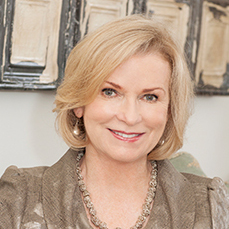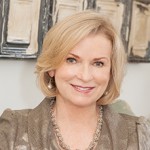Letter from Karen McCall on her upcoming training
Let me ask you… what does your perfect career look like?
If you could design it to be just the way you want it?
I’m asking because almost every day I talk to people who feel frustrated, unhappy, under-appreciated and underpaid in their work. Or their job is “okay,” but they feel called to something greater… something more meaningful, exciting and rewarding.
But they’re not sure what that “something” is.
Recently, I read an article in Forbes magazine that listed The Top Six Reasons People Want Out of Their Careers. I wasn’t surprised to find that the top six included a lack of balance, money, respect, and meaning, as well as the inability to acquire new skills or feel at ease.
It makes sense that people want a career that gives them:
- the freedom to balance work with their family life.
- the guarantee of a good income in any economy.
- the opportunity to hone their skills and abilities.
- the respect and appreciation of others.
- the feeling of ease and joy in their work.
- the joy of knowing their work has a great purpose and meaning.
What about you? Are these some of the qualities you would include in your perfect career?
I remember when I first started out as a Financial Recovery Counselor. I would come home buzzing with excitement. It felt so amazing to help people achieve breakthroughs that radically improved every aspect of their lives.
The fact that my work was in high demand and I could charge fees most professionals would envy didn’t hurt either. It was so liberating to know that, no matter what, I could always make great money and feel great about the work I was doing in the world.
Now, I get that same rush of excitement and gratitude when my counselor trainees begin to sense how profoundly they can improve people’s lives as well as their own by becoming a Financial Recovery Counselor. In a recent training class, for example, one of my trainees blurted out, “This work is changing my life!” And she hadn’t even seen her first client yet!
Starting now, I’m accepting 8 new trainees into the fall Financial Recovery Training.
This training is not for everyone. It requires a level of commitment, desire and willingness to transform your own relationship with money so you can help others do the same.
 If you have a genuine desire to help others, and you crave more meaning, freedom and financial compensation from your career, I invite you to apply for the fall training. I’ve redesigned the program so it is more affordable than ever without sacrificing the depth of content, mentorship and supervision. But as I mentioned, I’ll only be accepting 8 trainees.
If you have a genuine desire to help others, and you crave more meaning, freedom and financial compensation from your career, I invite you to apply for the fall training. I’ve redesigned the program so it is more affordable than ever without sacrificing the depth of content, mentorship and supervision. But as I mentioned, I’ll only be accepting 8 trainees.
To give you more information, on Saturday August 24th, at 10am, I am doing a free webinar. Jump on and listen in: “The First Step to Having the Career and Income You Want. Register here.
You can also head here and fill out this interview form, or give me a call today (415-742-4292) and we’ll set up a time to talk about whether this training is a perfect fit for you.
Warmest regards,
| Karen McCallFounder, Financial Recovery Institutewww.FinancialRecovery.com |
Want more help transforming your relationship to money? Check out all the eBooks, audios, and more robust products Mikelann has created. Are you ready to break free of the “money fog” and step into earning what you are worth? Are you are ready to get in touch with your emotions so you never feel out of control around money again? Are you ready to love your financial life? Let Mikelann help you get there. Free items are at the top of the page.






